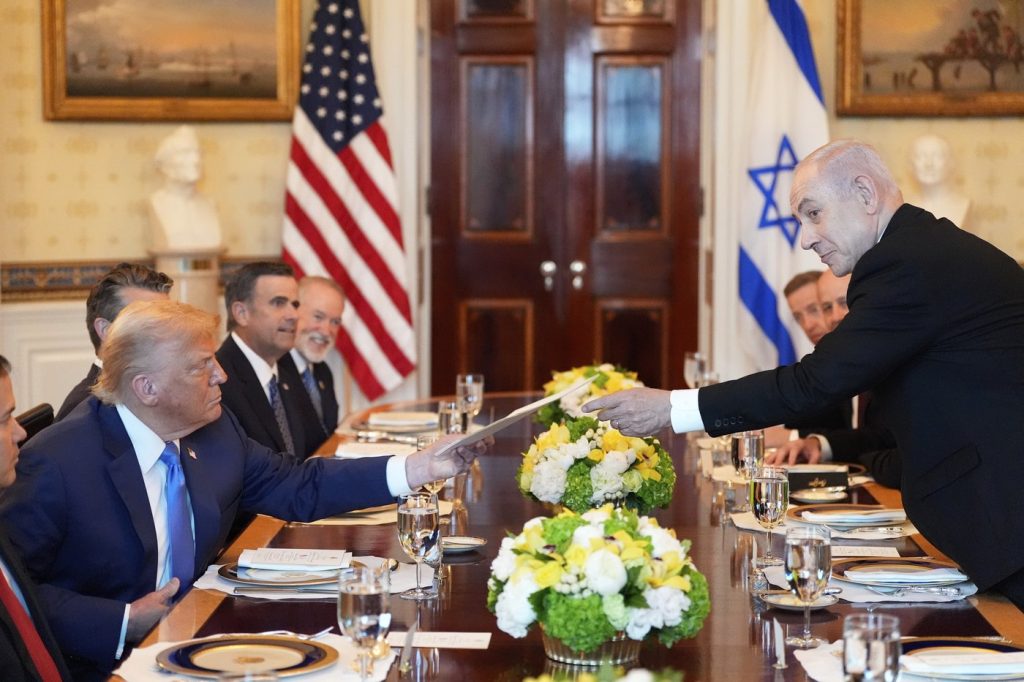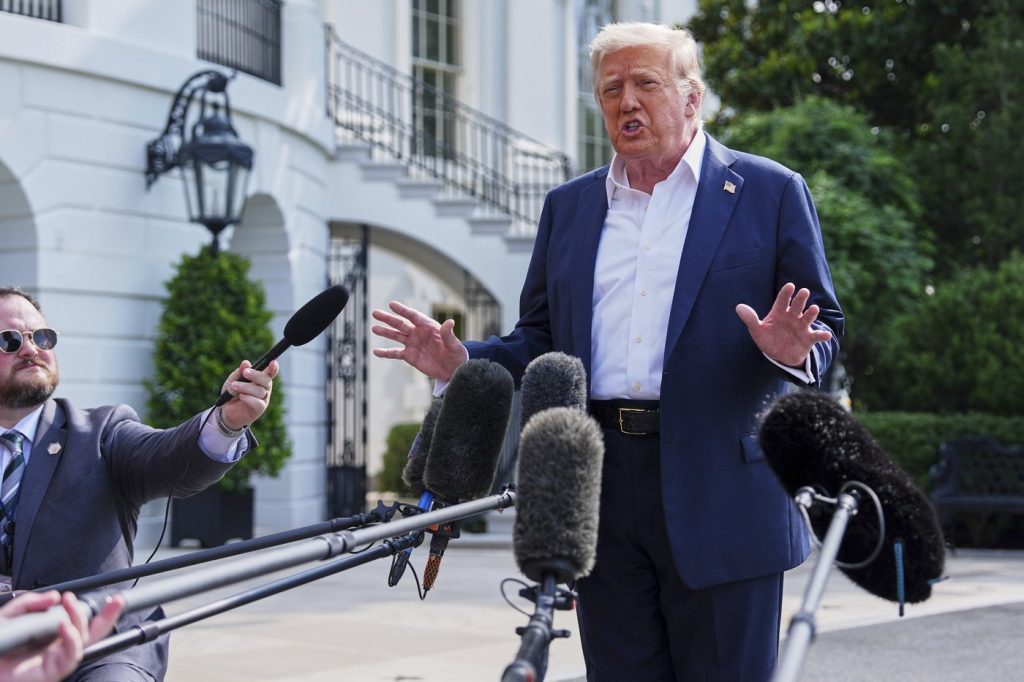Israeli Prime Minister Benjamin Netanyahu’s recent trip to Washington did not yield the desired ceasefire for the ongoing war in Gaza, despite President Donald Trump’s intention to negotiate a 60-day truce. The high-stakes visit resulted in Trump receiving another nomination for the Nobel Peace Prize, but it was marked by a disappointing lack of progress in peace talks. Trump's reputation as a dealmaker is on the line, and analysts note that this instance represents a crucial test of his influence over Netanyahu.
Rachel Brandenburg, managing director of the Israel Policy Forum, remarked that Trump "prides himself on being able to make deals," and the challenge lies in establishing a ceasefire that does not compromise his aligned strategic partnerships. With the backdrop of recent U.S.-Israeli military operations against Iranian nuclear facilities, the situation is complex, highlighting the tightrope Trump must walk in maintaining his relationship with Netanyahu while appeasing other pressures.
During a press briefing, Secretary of State Marco Rubio expressed cautious optimism about reaching a ceasefire in Gaza, stating, "we’re closer than we’ve been in quite a while." He underscored the significant effort the U.S. has invested in pursuing a truce, which would not only halt the violence but also create opportunities for Trump to advance broader Middle Eastern agreements, such as expanding the Abraham Accords initiated during his first term.
However, even if a truce is established, Netanyahu has committed to continuing military operations if required to dismantle Hamas. The militant organization has stipulated that the release of hostages is contingent upon Israel withdrawing from Gaza, a condition Israel is unwilling to fulfill. This ongoing stalemate poses challenges for both leaders in their diplomatic endeavors.
The relationship between Trump and Netanyahu appears to be at a revival point, with both leaders seemingly aligned following U.S. military assistance in Israel’s attacks on Iranian targets. This alignment contrasts with previous tensions, particularly after the Hamas attacks on Israel on October 7, 2023, which prompted Trump to criticize Netanyahu’s preparedness for such an invasion.
Netanyahu’s current visit was marked by public displays of gratitude; he directly nominated Trump for a Nobel Peace Prize, attempting to strengthen ties between them amidst a challenging political landscape. However, these acts of praise may not be sufficient if Netanyahu is not receptive to the peace initiatives Trump wishes to pursue, which could endanger their alliance.
Domestically, Netanyahu faces increasing pressure from the Israeli public to conclude the war, especially as the humanitarian toll rises and more Israeli soldiers are killed in confrontations with Hamas. Although Netanyahu’s military successes against Iran have granted him some political leverage, a failure to fully eradicate Hamas could lead to significant backlash, particularly from his far-right coalition partners, who may threaten to withdraw their support.
As a response to the present situation, Netanyahu indicated a willingness to negotiate a "temporary" 60-day ceasefire, given that half of the remaining hostages are released. However, he insisted that any permanent peace deal is contingent upon Hamas disarming—a demand that the militants have thus far refused, especially while Israeli forces occupy parts of Gaza.
In conclusion, Netanyahu emphasized that if negotiations do not lead to disarmament within the projected timeframe, Israel would not hesitate to employ military measures to achieve its objectives. This ongoing conflict reflects a turbulence within the Israeli leadership, the U.S.-Israel alliance, and the broader Middle Eastern peace landscape as both leaders navigate these complex dynamics.












